Georgia: Civil Society & Inclusive Governance
PIN supports the development of an active and grassroots-based civil society which is able to constructively engage local authorities and other stakeholders on the issues that matter the most to local communities.
To do so, PIN works to scale up a well-proven mechanism of participatory local development that sees civil society organizations and other active citizens working together with institutions to develop good strategies for the social and economic development of their territories.
PIN’s approach is two-fold. Firstly, we aim to empower people and civil society organizations by providing the tools and knowledge required through trainings and workshops. Subsequently, PIN proactively supports dialogue among actors and provides grants to support social projects that are designed in a participatory manner - in particular, the ones developed by young people and municipalities to jointly solve community issues. With a ‘learn-by-doing’ approach, PIN also supports local institutions to increasingly finance local development themselves, fostering a future of self-reliance.
Ongoing aidORPast aid programmes
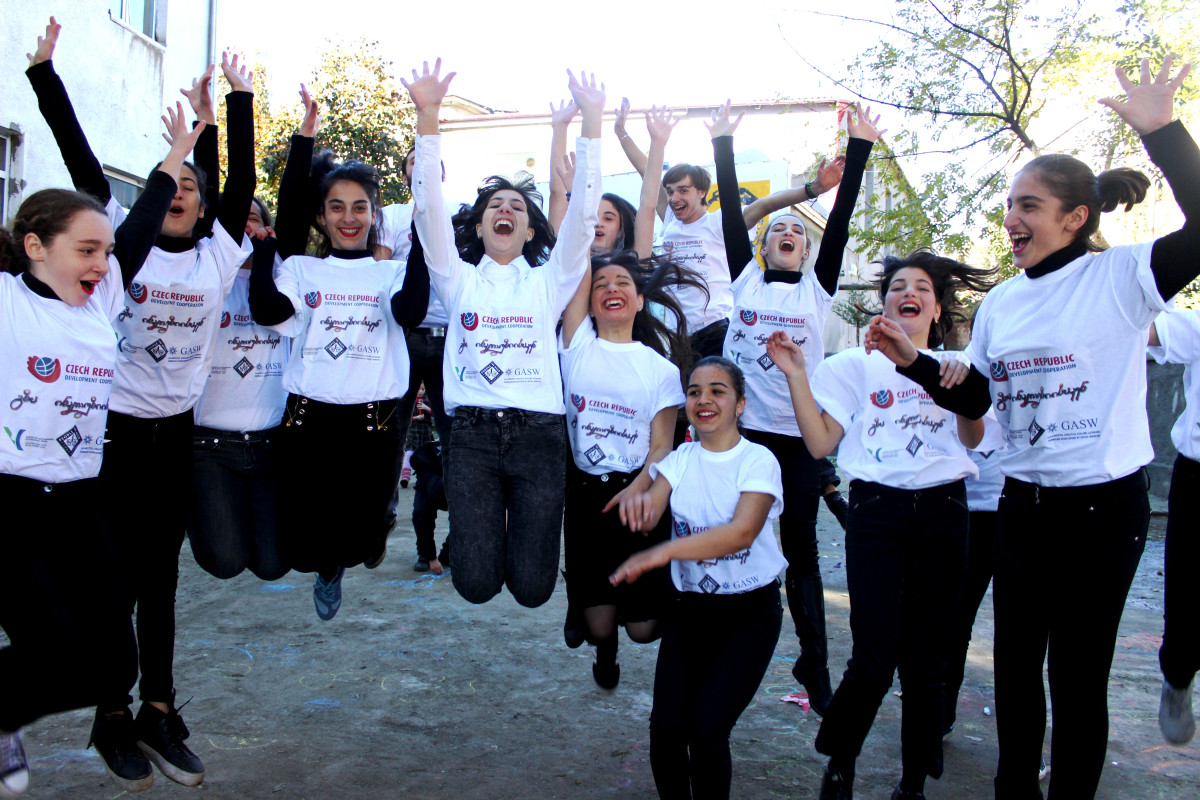
Human Rights Through Documentaries
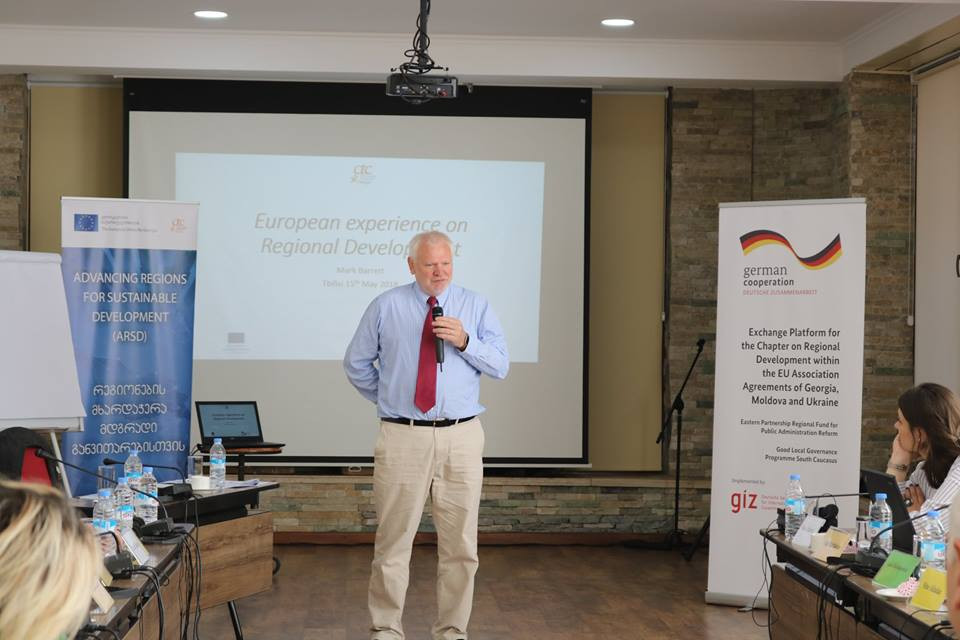
Advancing Regions for Sustainable Development

Civil Society Organizations Supporting Free Trade with European Union
Still, a very small number of Georgian companies (according to some surveys only 6%) trade with the EU under the DCFTA. Region-based SME and particularly rural entrepreneurs with limited access to expertize, finance and difficulties entering new markets have to eventually comply with DCFTA regulations. In this regard, regional CSOs can serve as effective vectors of democratic and socio economic development in the rural regions.
Thus, the project strives to the following outcomes:
1/ Increased capacity of Local Action Groups (LAGs) and other CSOs to act as resource channels on relevant aspects of the DCFTA for micro- and small enterprises and agri-producers in their target areas.
2/ Increased capacity of LAGs and other CSOs to facilitate engagement of rural population in their areas in policy dialogue. The project’s target regions include Imereti, Mtskheta-Mtianeti, Kakheti, Samtskhe-Javakheti, Samegrelo-Zemo Svaneti, Adjara and Kvemo-Kartli.

Support for vulnerable groups and their integration into society

Resilient Civil Society and Media Respond to the Ukraine War
PIN sees local actors of change, such as CSOs, grassroots groups, and other actors of civil society, as crucial for maintaining an effective response to the impacts of the war in Ukraine. PIN aims to increase the capacities of CSOs to be able to deliver extended and more inclusive service provision and plans to disburse grants to CSOs.

EU COVID-19 Solidarity Programme for the Eastern Partnership
PIN recognises the critical role local civil society organisations (CSOs) and independent media play in service delivery, community mobilisation, awareness raising, policy engagement, and advocacy for the protection of human rights and civic freedoms during and after the pandemic. We will support the CSOs and other civic actors to mitigate the impact of COVID-19 on vulnerable populations by empowering them with services and access to accurate information.
PIN will capitalise on its in-depth field-level knowledge to support CSOs that focus on community-level initiatives, watchdog programmes, and local independent journalism. Our partners NHC and AFEW are specialised in activities to improve human rights protection for responsible persons in closed institutions and key populations at risk for public health concerns like HIV, TB, and viral hepatitis. We will provide grant support to NGOs working with these beneficiaries and assist them in developing strengthened monitoring, reporting, advisory, agenda-setting, and advocacy work.
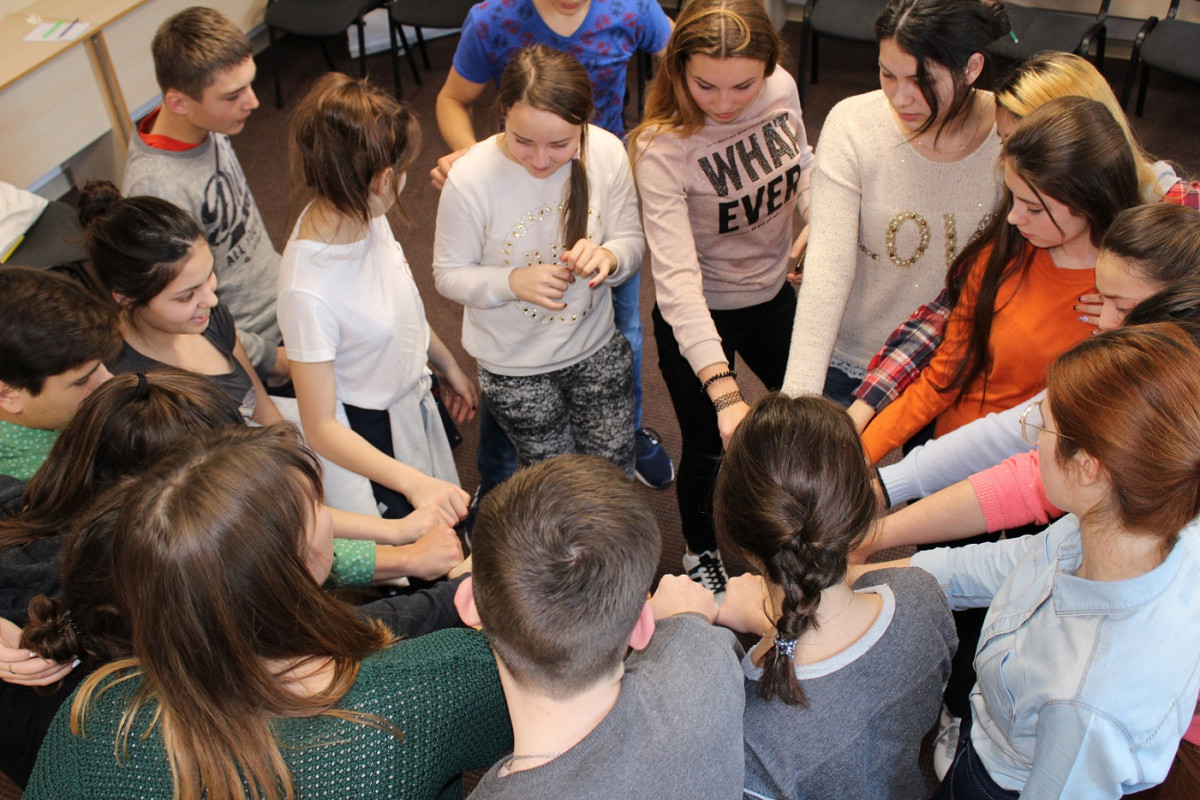
Civil Society Actors as Drivers of Change in South Caucasus and Moldova
The project team will work closely with selected civic initiatives to develop a strategy for each of them regarding their path and position in the society. They will take part in trainings, coaching, mentoring, consultations, study visits, fellowships; will establish or improve connections with their supporters and volunteers; and will network with peers and partners in Armenia, Georgia or the Republic of Moldova and abroad.
The selected civic initiatives will have the opportunity to get support for research and building thematic expertise, as well as get involved in policy dialogue at local, national or international level. During their participation in the project, the newly established civil society organisations will find out if, why and how to engage with the private sector for potential cooperation, and will find effective, transparent and accountable ways to self-organize and manage resources. The project will ensure access to funding opportunities for the internal development of selected civic initiatives or for carrying out campaigns designed by them.

Improving Vocational Education
In addition, the VET monitoring toolkit is being developed. The toolkit enables stakeholders participating in the coordination platform to monitor themselves changes in labour market needs. It is based on an analysis of the current agriculture VET provision through formal, non-formal and informal channels, farmer knowledge needs and a mapping of labour market needs in the agribusiness sector to identify mismatches.
People in Need works in close collaboration with the Information and Consultation Centre (ICC) to pilot apprenticeships schemes in commercial farms and promote other practical learning opportunities. Also, the organization pilots and tests a system of information messages and practical instruction videos for farmers.
The aim of the project, besides other things, is to promote positive role models in commercial farms and to make an agribusiness more attractive among school leavers, unemployed, farmers and rural population.
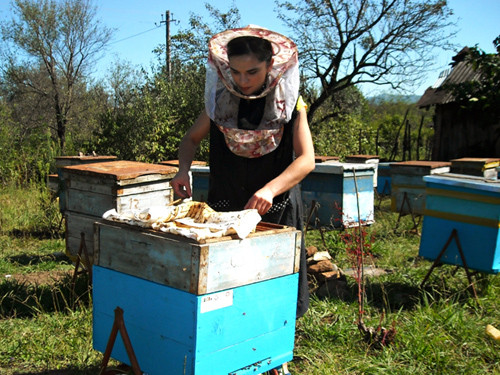
Strengthening rural development in Kazbegi district
The LEADER approach has been an important component of EU Rural Development Policy for over 20 years. It is piloted for the first time ever in Georgia. PIN supports participatory mechanisms in local decision making processes and the district's sustainable growth.
It is the basic principle of the LEADER approach that the action targets all types of local public, private and civic actors and individual inhabitants to create local partnerships and direct local resources towards more effective development. The active and committed representatives of Local Government, entrepreneurs, farmers, CSOs, citizens and other important local players, such as the Kazbegi National Park Administration, participate in local strategy planning as members of Local Action Group (LAG).
Together with a substantial input from other community members they formulate the Rural Development Strategy. Once the Strategy is developed, they solicit calls for proposals from residents and distribute small grants for projects in areas prioritised by the Strategy. The whole process is transparent and open to any Kazbegi resident.
The Action includes strong capacity building component for all target groups to enable a new methodology to be efficiently implemented, and to ensure sustainability of project outcomes. Based on experience from EU countries, which have long history of LEADER implementation, this approach ensures that active individuals are able to mobilise their social networks, the level of community participation increases overall and it helps economic development renewal.
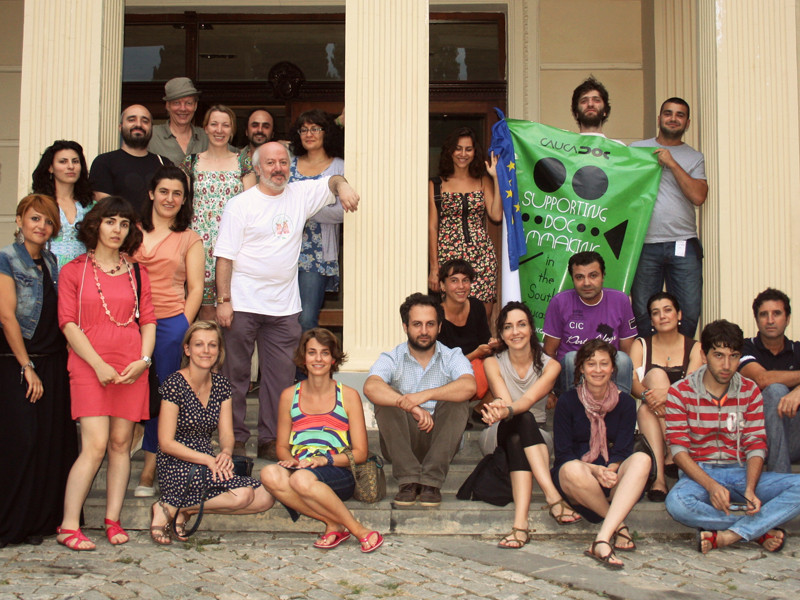
Education through documentary films
PIN Georgia used and developed PIN’s One World in Schools educational programme, which had originally started in Czech Republic in 2001. The One World in Schools methodology combines documentary films, other audiovisual aids and follow up activities and helps teachers to teach more effectively about complex social topics, such as human rights, democracy values, and conflict mediation or prevention.
To date, the methodology is used by more than 300 teachers from more than 130 schools all over Georgia. The organization People in Need closely cooperated with the Ministry of Education and Science and its Teachers Professional Development Centre. As a result of this cooperation, the One World in Schools methodology was included into the official curriculum of social science teachers’ professional development and consequently became available to all Georgian social science teachers.
Handing over the methodology to local partners, People in Need assisted with development of new educational toolkits (DVDs with films & teachers handbooks) and provided continuous support to the teachers and students (study visits, conferences, regular consultations).

Development of civil society
Over a period of seven years, People in Need has trained more than 960 young people and representatives of non-governmental organizations in problem identification, project management, preparation of project applications and collaboration with local assemblies.
Within the framework of the project, the organization also actively cooperates with local assemblies, providing them with training in how to involve civil society in community decision-making processes. Since 2012, People in Need has assisted selected municipalities in setting up regional action plans to support active youths and civil society.
In 2012-2013, People in Need also supported initiatives in remote regions of Georgia (and also Azerbaijan and Armenia) in organizing small scale documentary film festivals in their communities, screening documentaries on crucial issues (conflict transformation, human rights). All screenings were followed up by a debate that enabled the local communities to open dialogue on these crucial issues, some of which having been taboo before. Since 2014, four of these festivals in Georgia continue screening films without People in Need’s support. Moreover, extensive library of documentary films in Georgian is available for everybody who wishes to organize a single screening and used mostly by university teachers or activists.
In frame of the current phase of support to civil society development in Georgia, People in Need strives to strengthen local government representatives' sense of responsibility towards the public through support of civil society representatives and wide public in their efforts to increase transparency of decision making-processes on local level.
In January 2016 People in Need launched the project that aims to strengthen the link between public and civic actors and harmonize their activities in the area of social inclusion by establishing a joint advisory body, the Advisory Council on Social Inclusion (AC), and piloting Social Integration Programme (SIP) approach with four CSOs in four municipalities. Joint action of the Advisory Council produces strategic directions for local social inclusion activities. The targeted CSOs are supported by intensive capacity building, mentoring and networking to become stronger partners to public institutions and participate in setting priorities and increasing the efficiency of social inclusion programmes at local and national levels.




